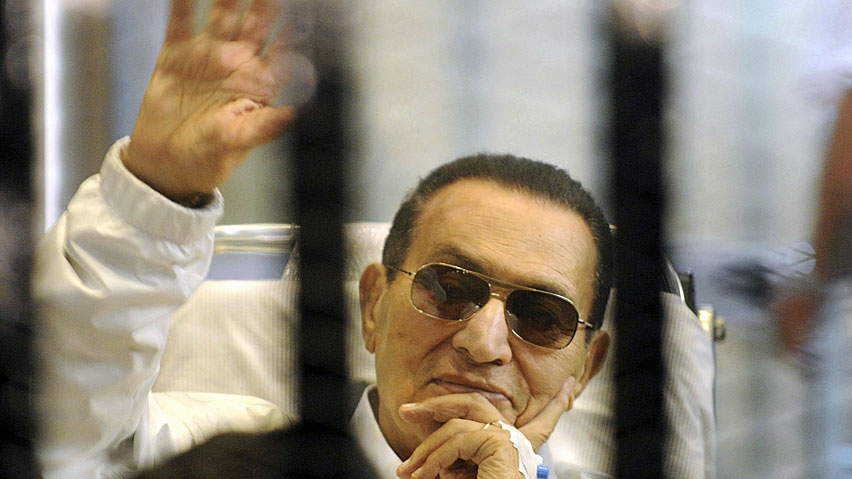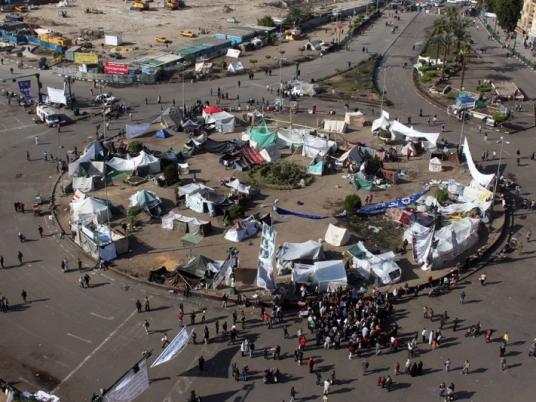Residents of Cairo’s sprawling shantytowns are rejoicing in the fall of a security force that has long oppressed them, but many are also becoming increasingly skeptical of the current course of the 25 January revolution.
Despite signs indicating a gradual return to normalcy, certain elements of daily life have come to a standstill, affecting the livelihoods of the stratum of Egyptian society that earns a meager living based largely on daily earnings.
Many accused the pro-democracy protestors at Tahrir Square of lacking empathy with their situation and “the current instability” in Egypt.
“These people are very poor. As long as they have LE10 (about $1.80) in their pockets to feed their families, they’ll go home. They don’t have much more far-reaching aspirations,” said Fathi Gleed, a parliamentarian representing district 21 of Cairo's Manyal neighborhood.
Garbage collectors and craftsmen, who operate on daily contracts for petty salaries that vary between LE20 and LE50 and save very little, have not been able to work since 25 January.
“I sell recyclable plastic from garbage dumps and have been living off charity for the past 12 days,” explained 52-year-old Abdullah from the Abu Qarn slum. “[The protesters] should go home so things return back to normal.”
Prices of goods have risen significantly in the area, driving many social activists to engage in campaigns to subsidize them. Food staples and daily consumer goods have risen by between 50 and 100 percent. The curfew has created a supply crisis, and decreased work prospects have thwarted consumers’ purchasing power.
Many merchants in the area, however, believe the price hikes are the result of opportunistic suppliers hoping to increase their profits. “No one leaves their home because prices are high, and no one can afford the goods on the market today,” said 30-year-old Sayyed, who sells vegetables.
Despite the general dissatisfaction in the area, residents admit to already reaping many benefits from the uprising. “We are now able to get revenge on security forces. We lived in constant fear of them for decades. People like us had no way to defend ourselves against them,” said Saeed, a mechanic’s apprentice.
“On 28 January, I told my kids to go out and throw rocks at the security forces,” said Ahmed, a garbage man.
Cairenes have lived under emergency law for the past 29 years, which has given carte blanche to Egyptian police to detain, arrest and harass people without warrants or due process.
“Before we were victims of extortion by police–even for just driving through certain neighborhoods. If you didn’t pay, they took you,” said 28-year-old Mohamed, a plastics dealer.
“Most people couldn’t afford to make ends meet on their daily income while paying off police at the same time,” he added. “The government was indirectly forcing its people to steal.”
Cairo’s shantytowns have also suffered over the past 20 years from a chronic shortage of adequate infrastructure and services.
“We had to independently work on getting sewage and potable water to our area,” said Wafa, who owns a small grocery store. A government plumbing project has been in the process of being extended to this area–only ten minutes away from Tahrir squar–for the past three years, but has yet to be activated. People there believe that many planned infrastructure projects to their neighborhood are stalled because funds are “eaten up” by government middlemen.
The distrust of these administrative and law enforcement mediators is where the people of Ezbit Abu Qarn directed their anger on 28 January, while mostly absolving President Mubarak of complicity. “We want Mubarak, he’s the best of the bad guys,” Wafa added.
The dissatisfaction with the regime led many residents of this neighborhood to go out and protest, especially on Friday, 28 January. Like many other parts of Cairo, there were confrontations with security forces and explosions of anger directed at government buildings seen as symbols of oppression.
“The directorate of agriculture here was attacked because we all knew that that’s where police kept four tons of marijuana they used to sell to people as well as plant it on those they wanted to frame,” Saeed added. “Police supplied and enforced the drug trade here.”
“These people unfortunately don’t make the link between the president and the corrupt government,” said Sayyed, a primary school teacher from the area. Over the past 30 years, Mubarak has been able to distance himself from the inefficacies of his rule by have a revolving-door cabinet that has changed ten times since the beginning of his rule.
Some residents, however, expressed solidarity with the pro-democracy demonstrators at Tahrir. “They have realized great achievements over the past 12 days. We are afraid, however, that certain political groups are hijacking the revolution, ruling out other factions of the population,” explained Abdeen, a vegetable seller in his thirties.
“I wish people had staged protests earlier. The government is unjust. The protests must continue,” said Abdallah, a 22-year-old unemployed man.
25-year-old Mohamed, who works at the neighboring dump yard, said, “We do not want this government. We do not trust it,” in reference to the newly-appointed cabinet.
Others felt that people should give the newly-appointed government a chance. “President Mubarak is leaving soon anyway. We are losing our livelihood. If the protests did not cause disruptions to our livelihood, I would have continued to support them. But I cannot feed my children at this point,” said Atef.
Reliance on state media and NDP representatives for information has led many in the area to believe that the uprising has been overtaken by foreign elements, and that protestors are being paid to stay at Tahrir square. “We are with the 25 January protestors, but now we heard that the protestors there are being paid by foreign countries with a Kentucky meal a day and 100 Euros. It’s become a conspiracy to destabilize the country,” said Khaled, a shop owner.
From a neighboring area, Ezbit Khairallah, one man, who wished to remain anonymous, told Al-Masry Al-Youm that NDP members had offered people in his area between 50 and 5000 pounds to march to Tahrir in support of Mubarak and “disperse” the anti-Mubarak demonstrations. The source, who did not accept the offer, said that prominent thugs were offered more money than others, but would we be given half the amount if they failed to clear the square of protestors.
But whatever their particular views on the revolution, many residents expressed a restored sense of dignity with the fall of the hated police. “I was naïve before, and always wondered why Egyptians frowned all the time,” said Mohamed. “Now I realize that the oppressive regime was the reason."




